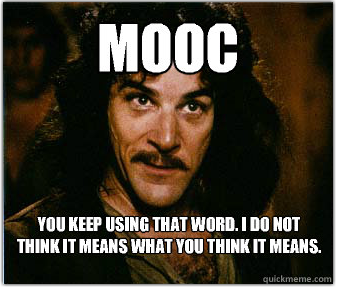The Topography of Tweets
Sometimes a map is not enough. What if instead of just showing roads and boundaries, it was a 3D model you could manipulate and explore? That is what Twitter's data visualization scientist Nicolas Belmonte (@philogb) did with geotagged tweets.
The mountain ranges you see below are not natural geography but the landscape of Tweets —
billions of them, visualized across cities. The peaks represent the places most Tweets are sent from,
the troughs the fewest.
Click here to explore different views, elevations, angles in several cities in an interactive map.


The mountain ranges you see below are not natural geography but the landscape of Tweets —
billions of them, visualized across cities. The peaks represent the places most Tweets are sent from,
the troughs the fewest.
Click here to explore different views, elevations, angles in several cities in an interactive map.

 There has been a backlash against MOOCs the past year as they have made inroads into higher education. I believe a lot of that is fear - fear by professors about lost jobs and fear by colleges of lost tuitions. Project that fear to the future and it is a fear about the end of universities and degrees being the dominant form of post-secondary education.
There has been a backlash against MOOCs the past year as they have made inroads into higher education. I believe a lot of that is fear - fear by professors about lost jobs and fear by colleges of lost tuitions. Project that fear to the future and it is a fear about the end of universities and degrees being the dominant form of post-secondary education.